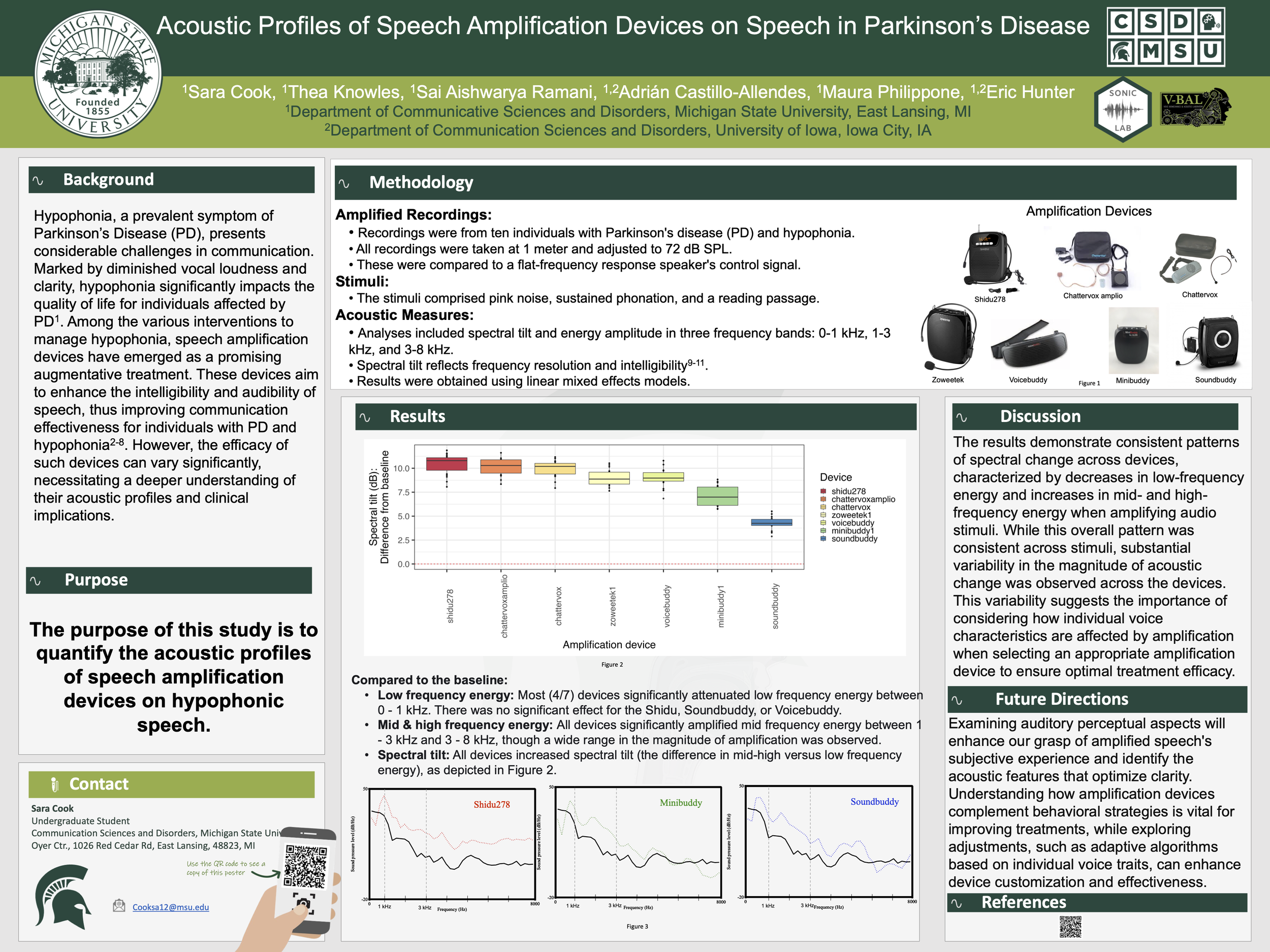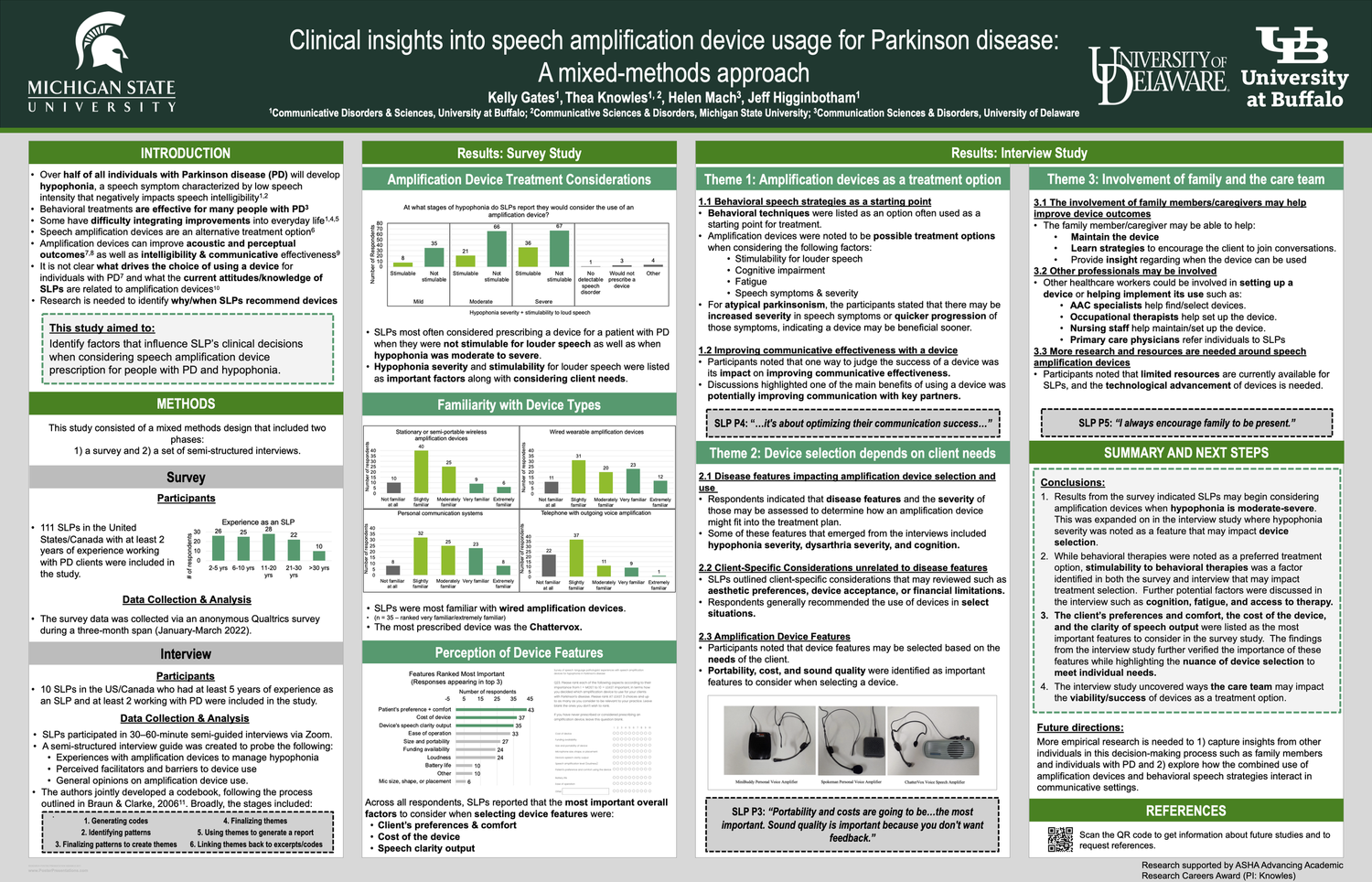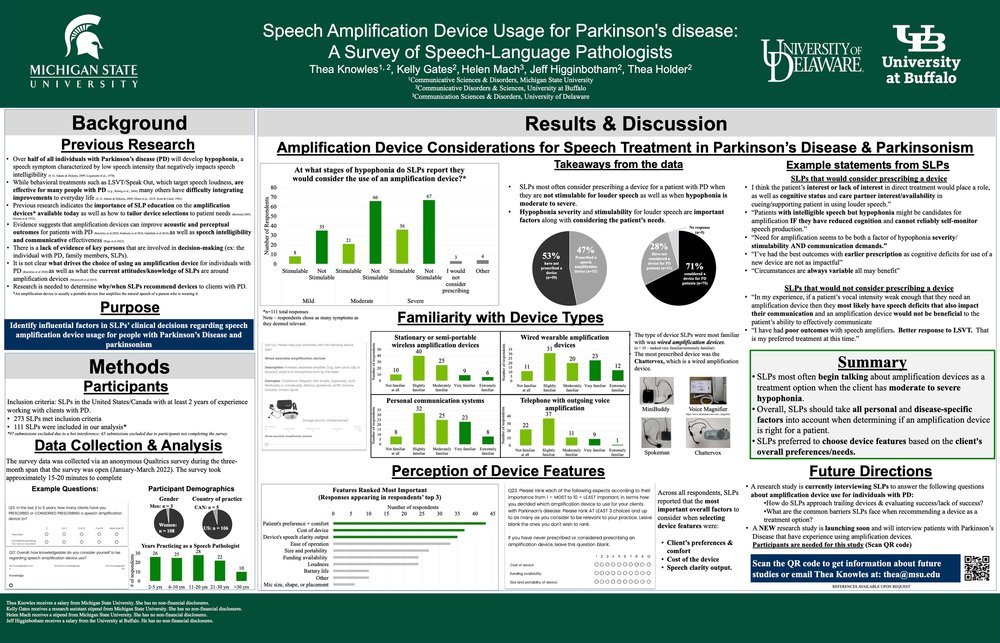Speech amplification devices for management of hypophonia in Parkinson’s disease
About
The most common speech symptom in Parkinson’s disease and parkinsonism is known as hypophonia, characterized by a weak, hoarse-breathy quiet voice (Adams et al., 2009). Reduced vocal loudness can negatively impact the ability to be heard and understood when speaking. While intensive, evidence-based treatments to manage vocal loudness are effective for many people with hypophonia, many other individuals have challenges integrating louder speech into their day-to-day communication. This can be difficult to the cognitive, sensorimotor, and fatigue-related challenges associated with Parkinson’s. One augmentative form of management that does not require a person to increase their own loudness is the use of a portable speech amplification device. Our lab investigates how different kinds of speech amplification devices may be used to manage hypophonia and the benefits and challenges that accompany this type of approach. Some topics under this arm of research include:
Perspectives of speech-language pathologists and people with hypophonia on their experiences with speech amplification devices
Comparisons of speech amplification devices for objective and subjective speech outcomes
Impact of speech amplification devices on the ability to participate in social, communicative settings
Presentations
Publications



